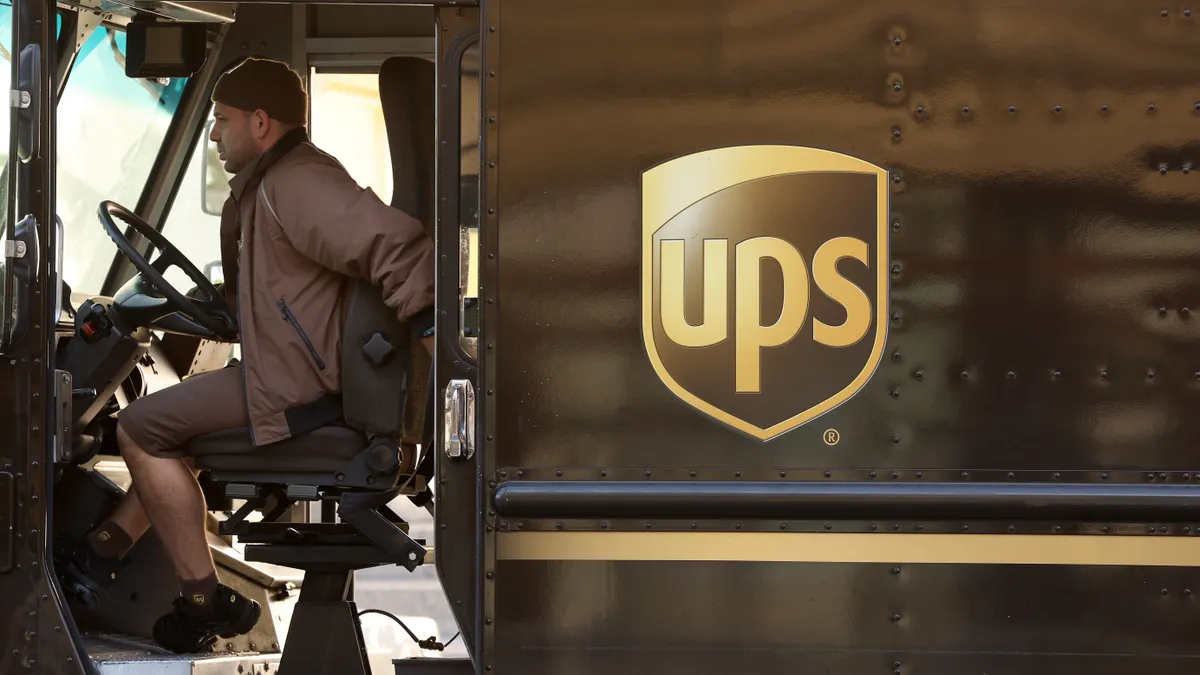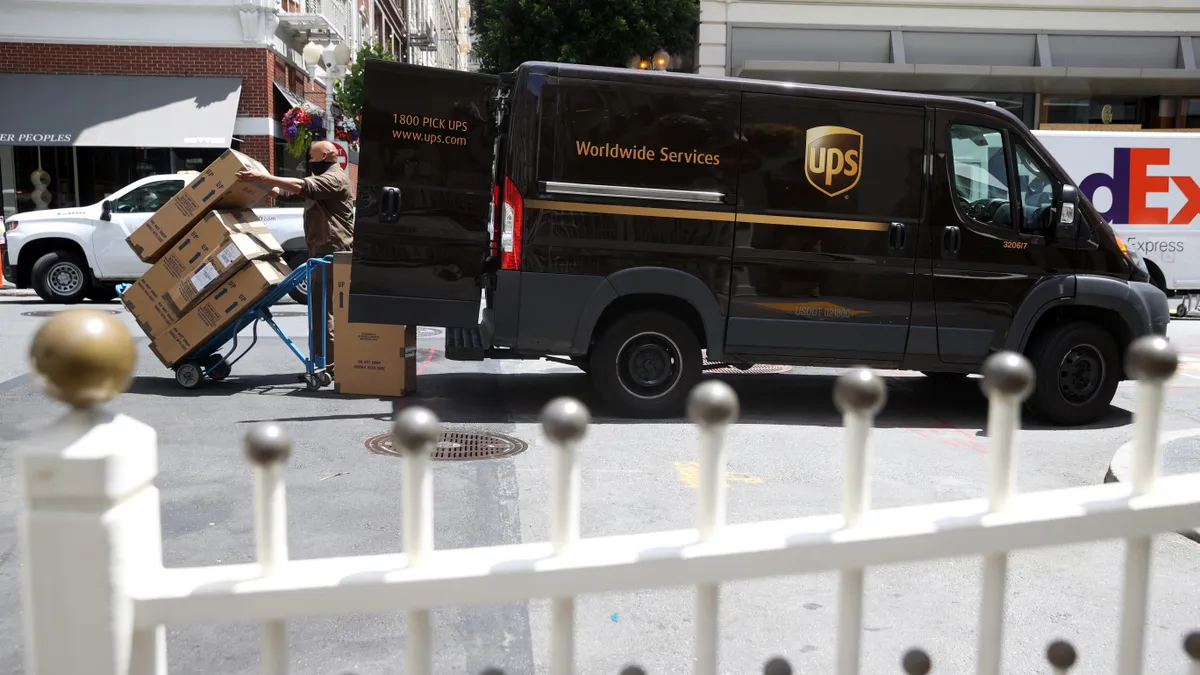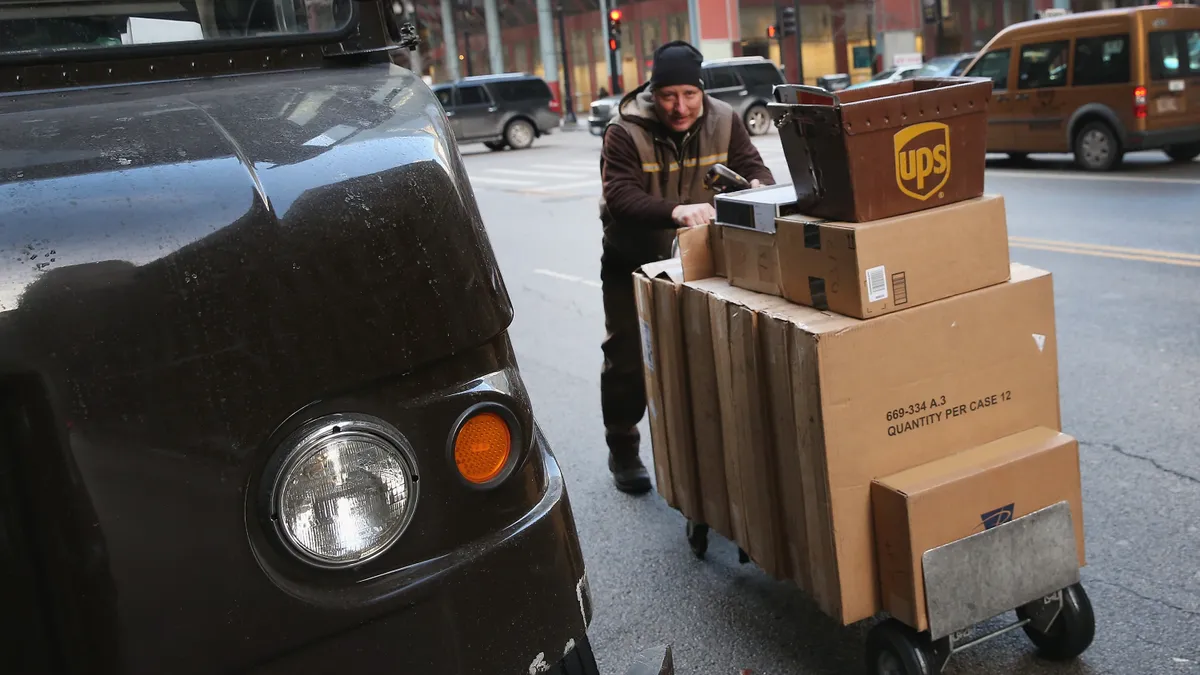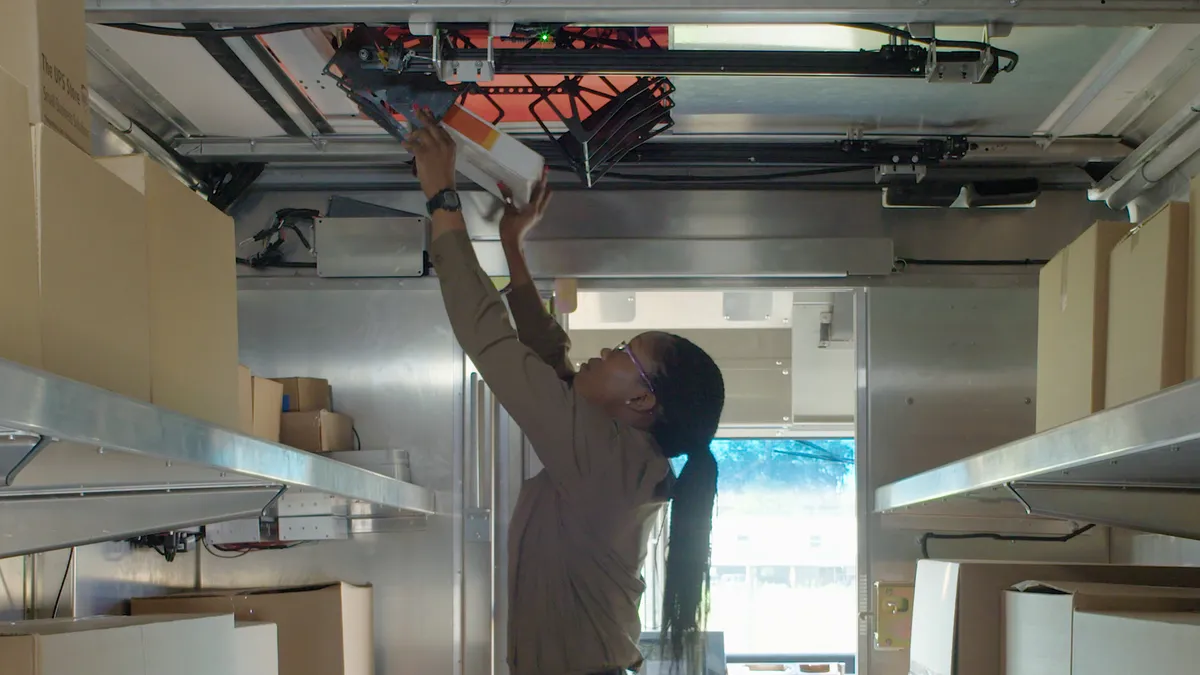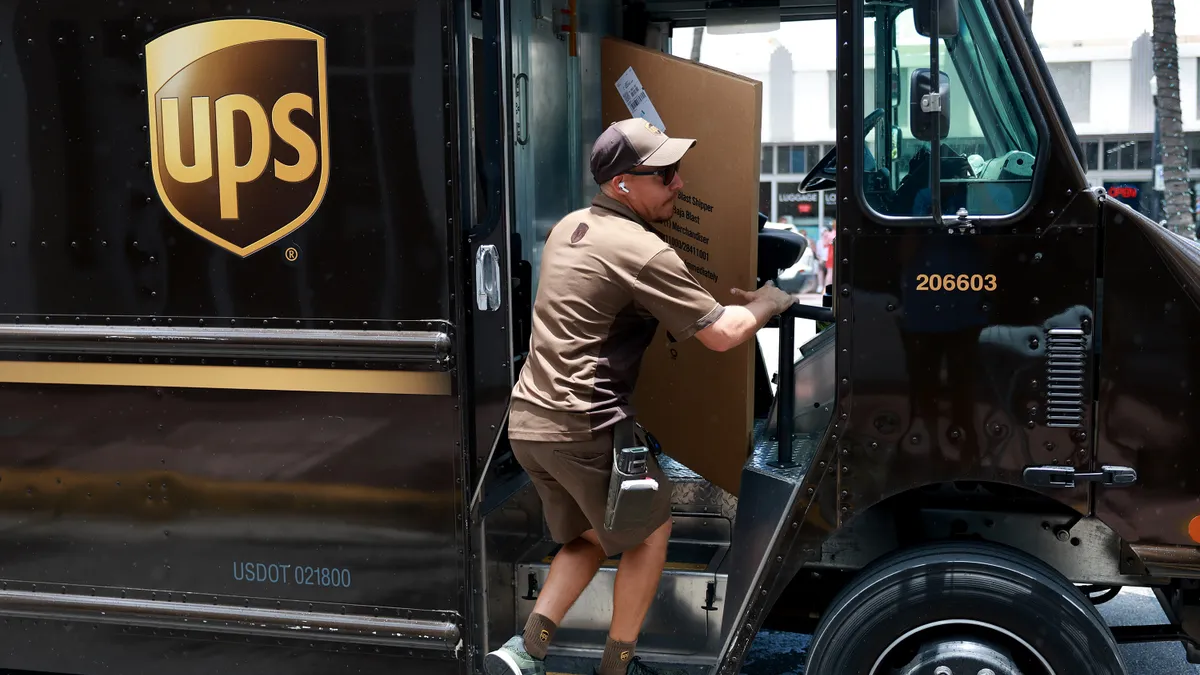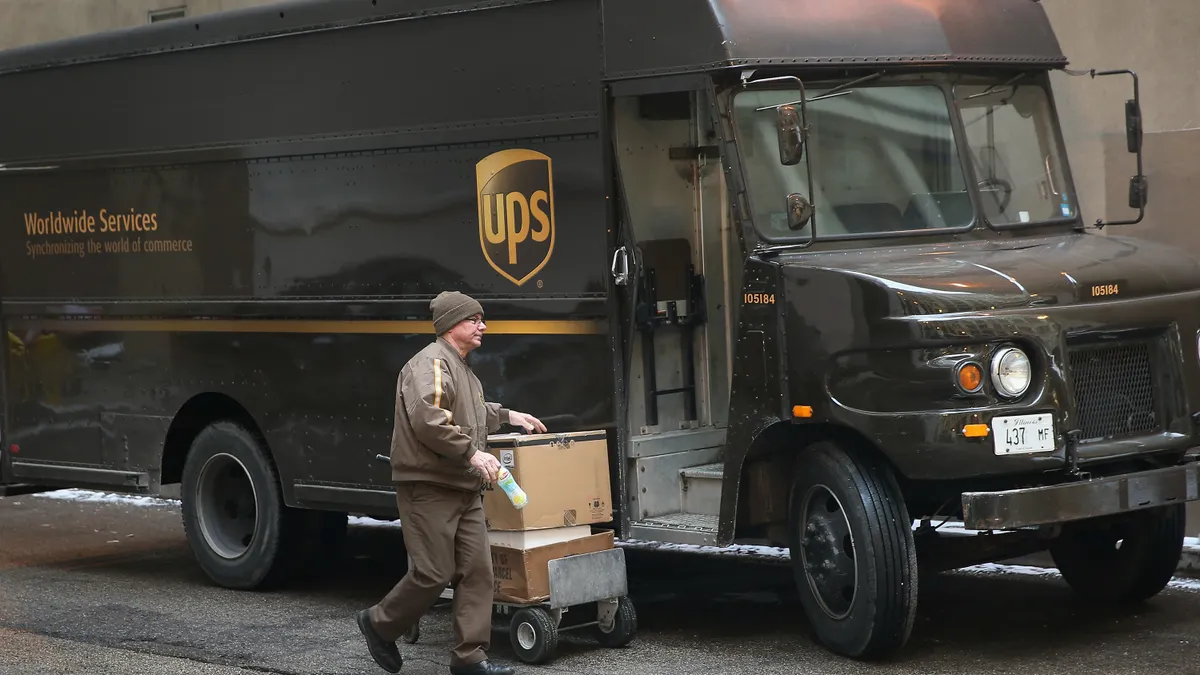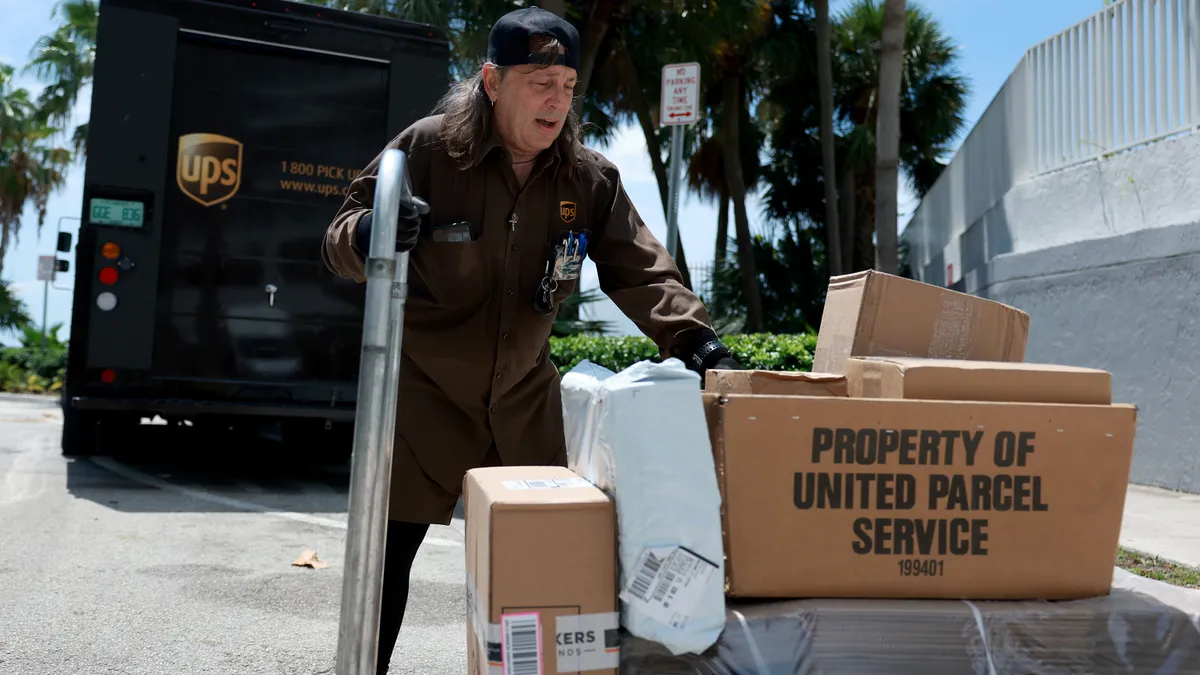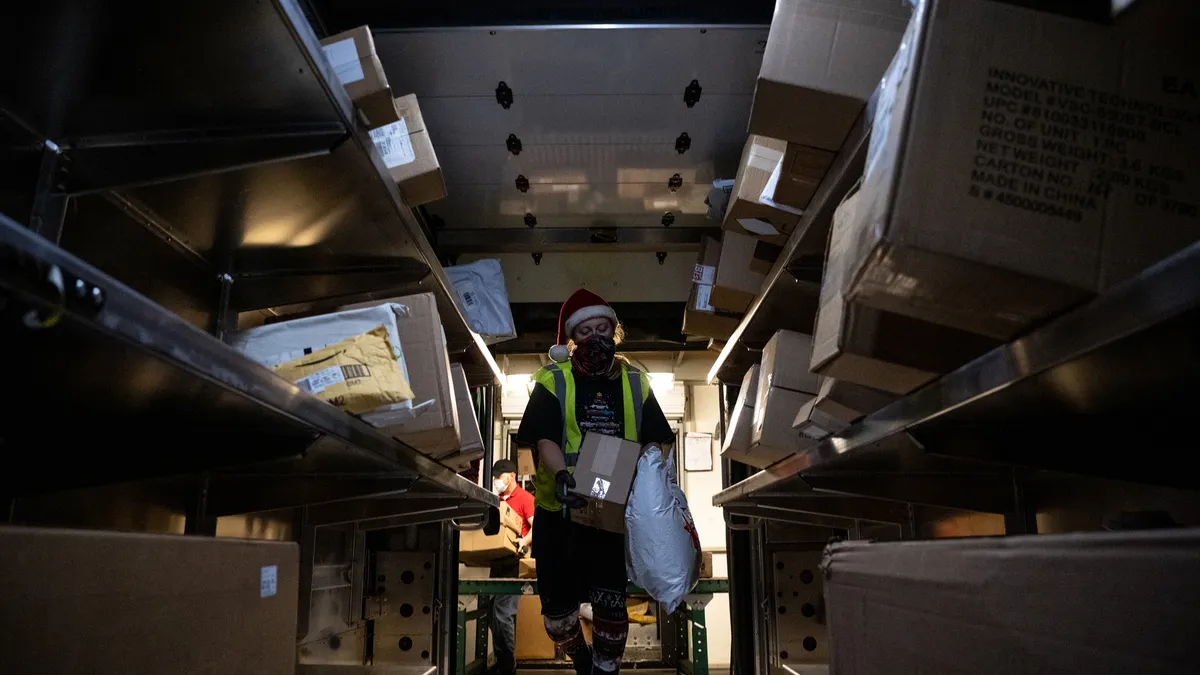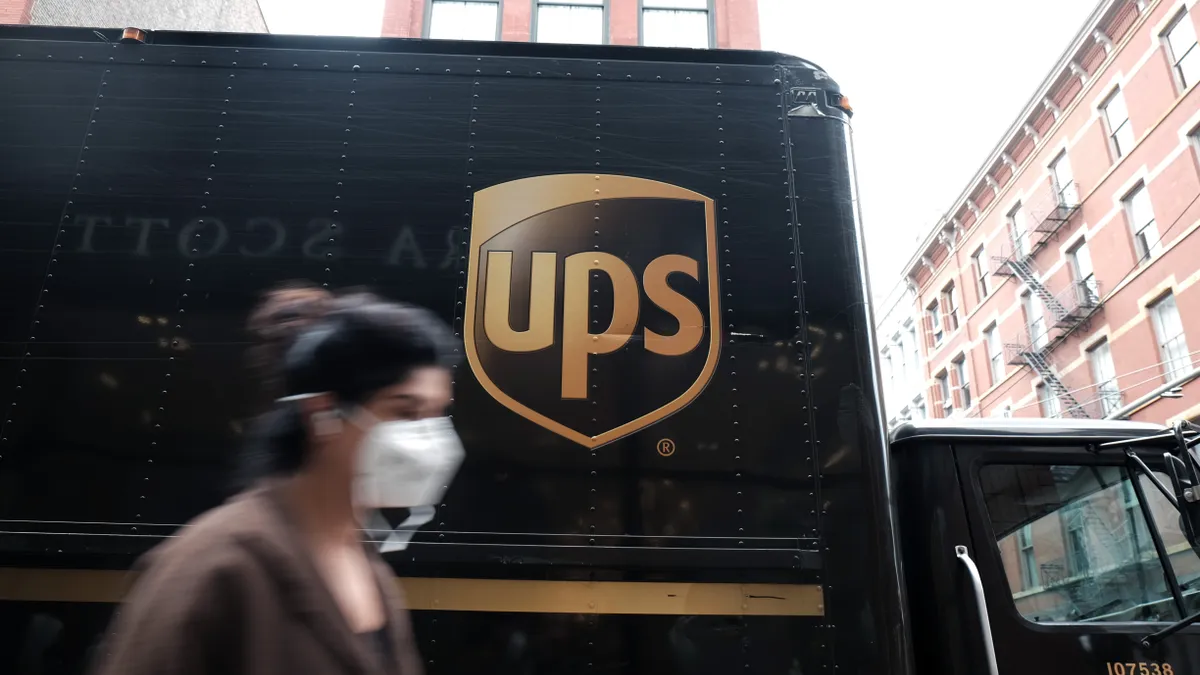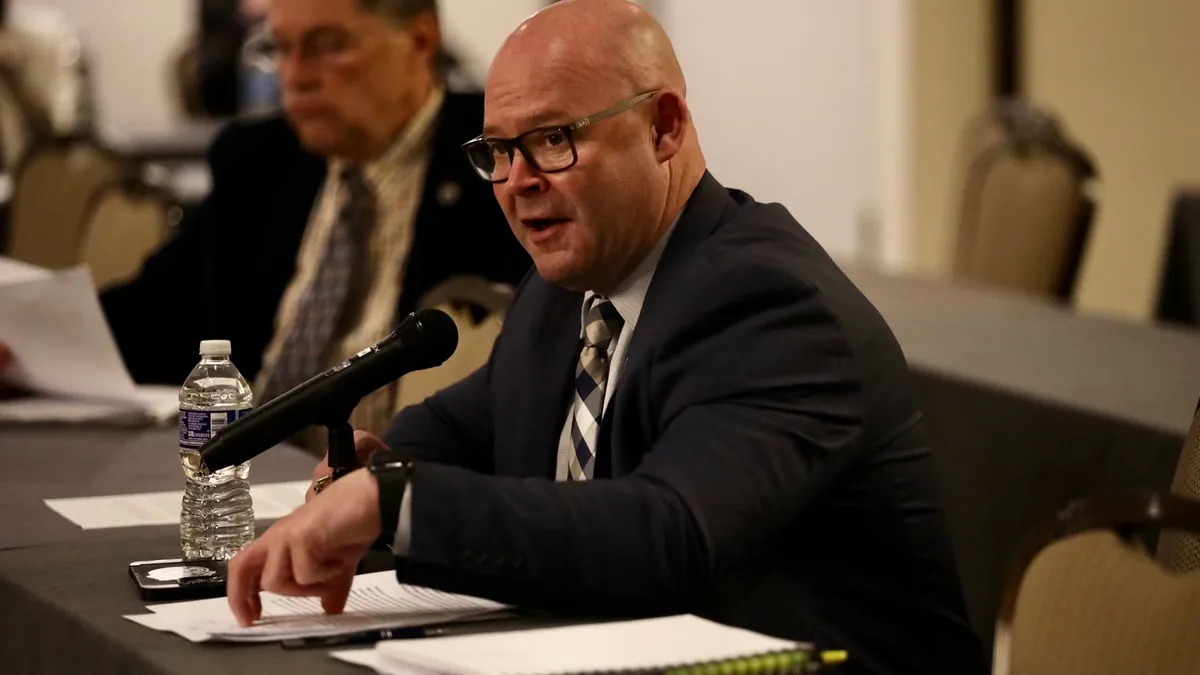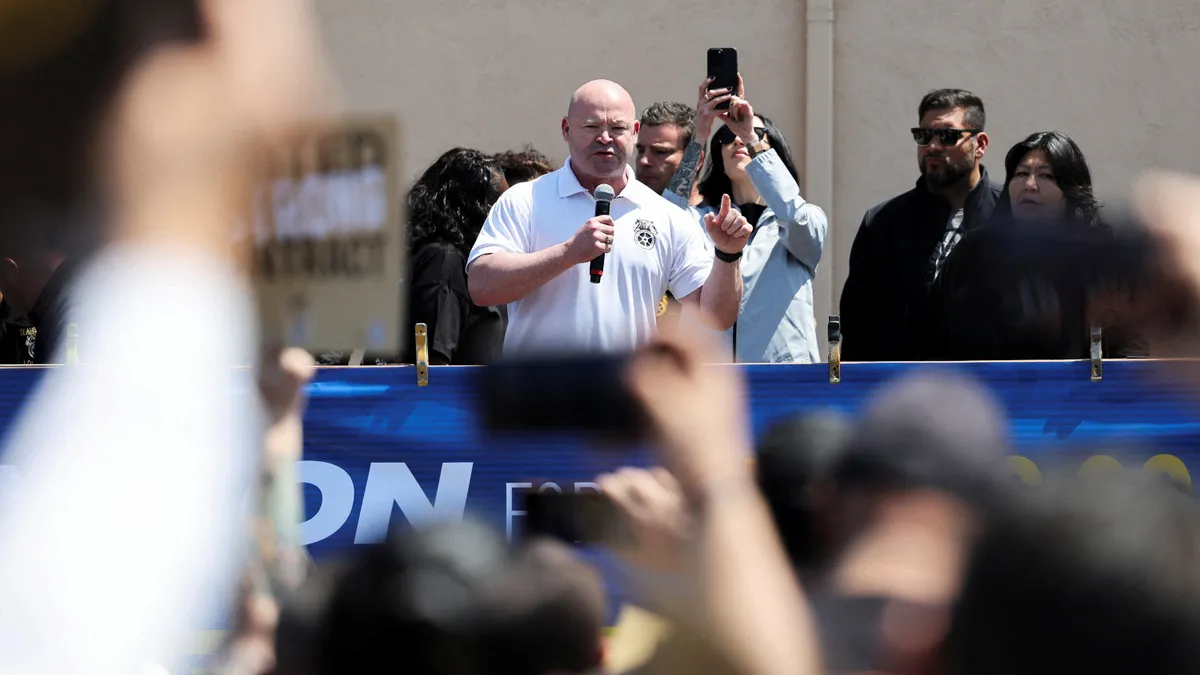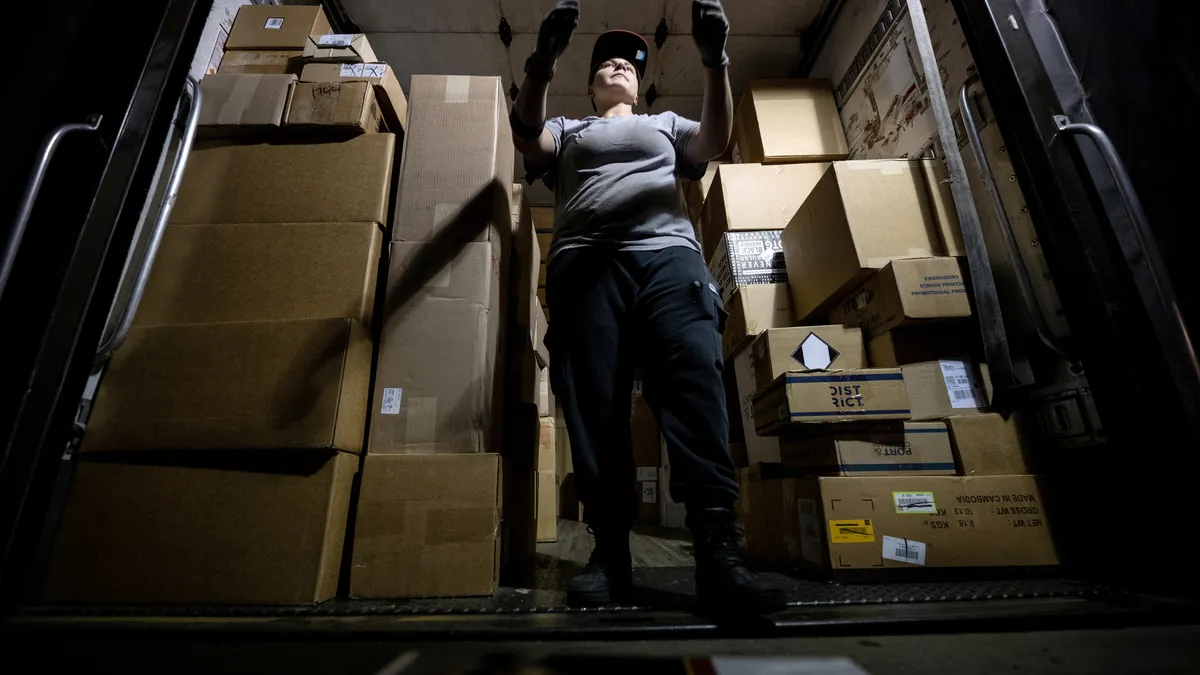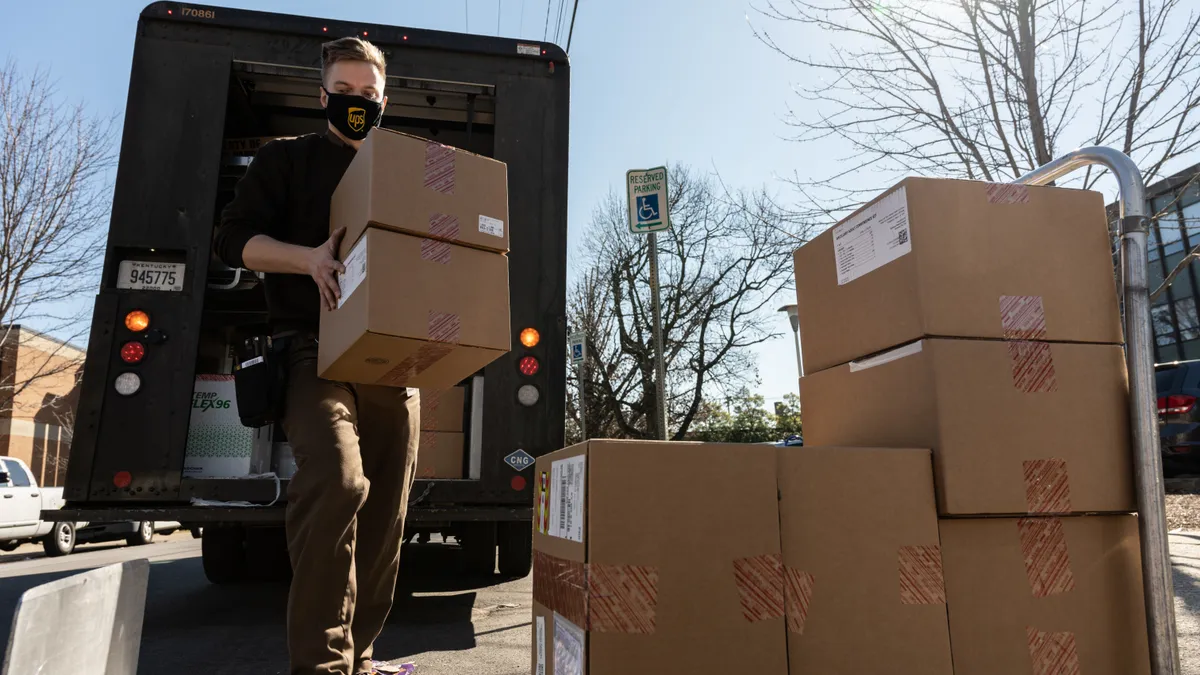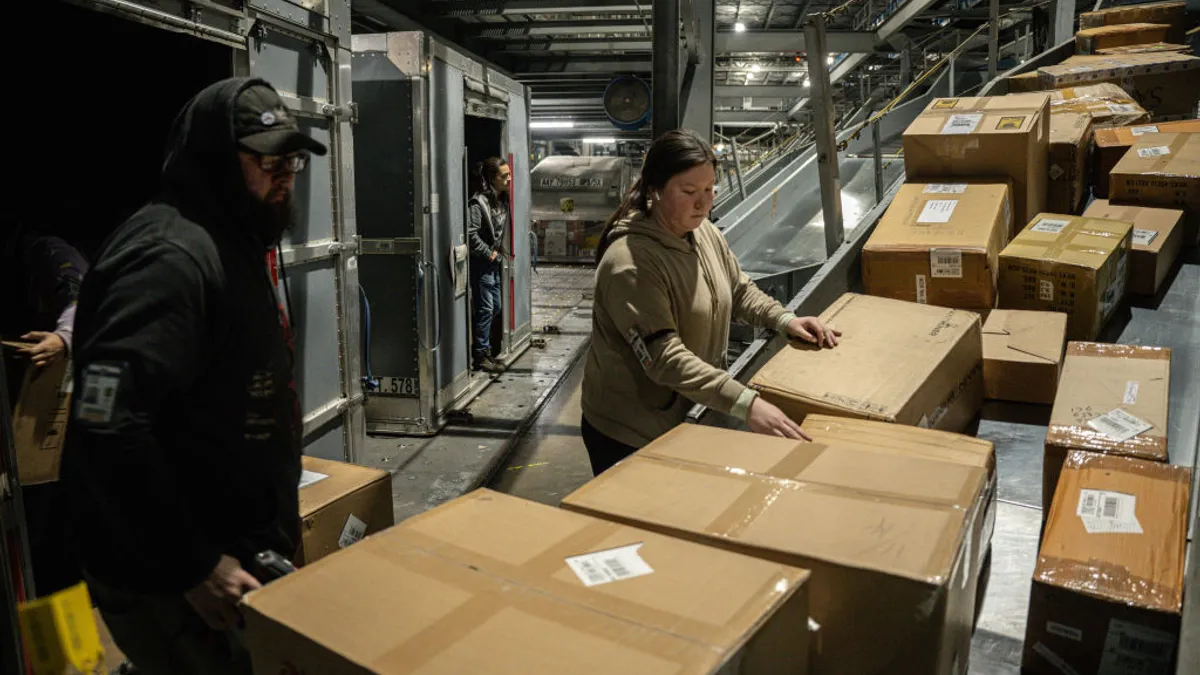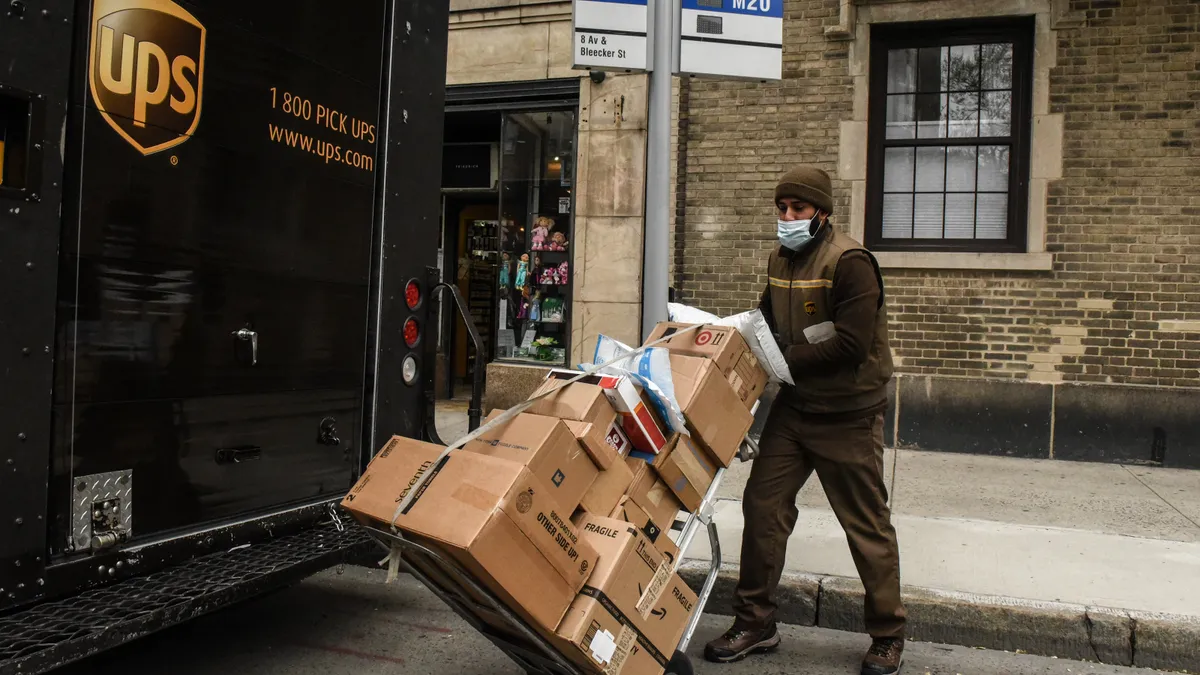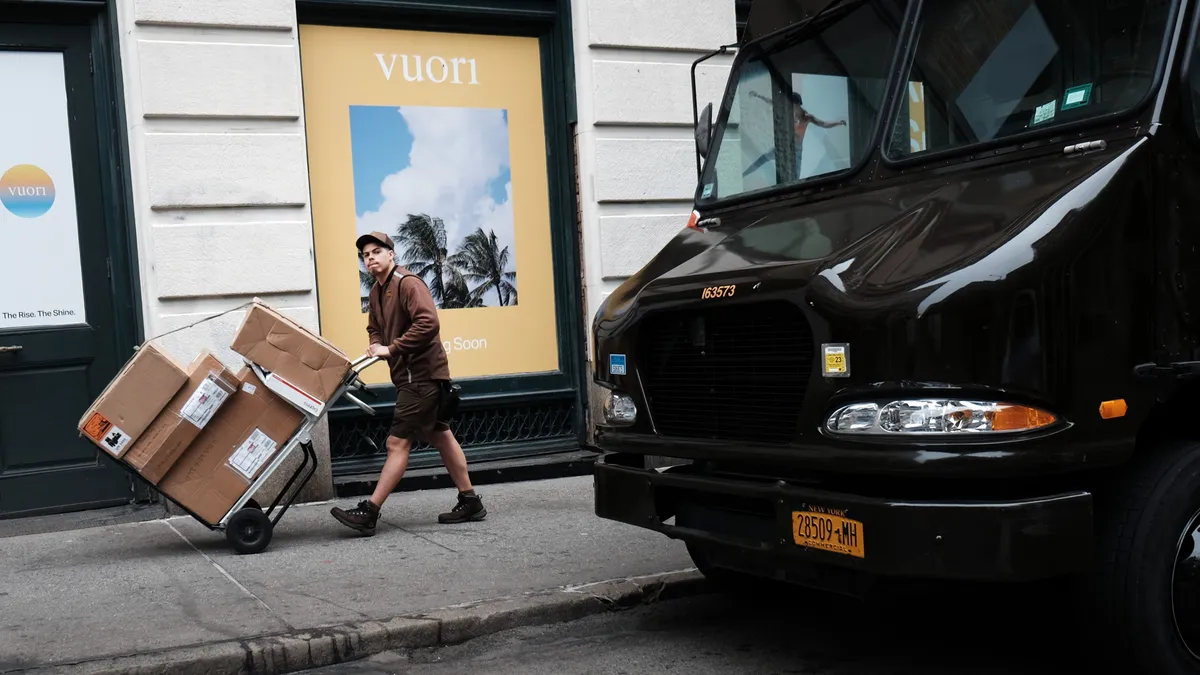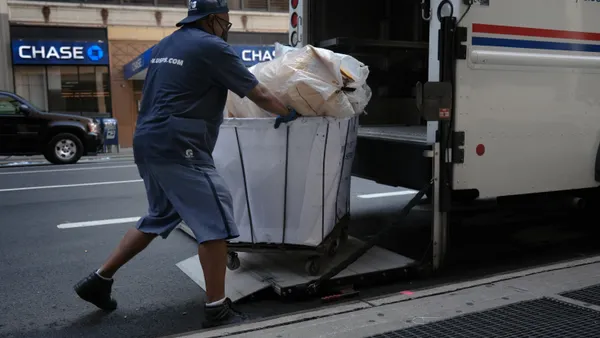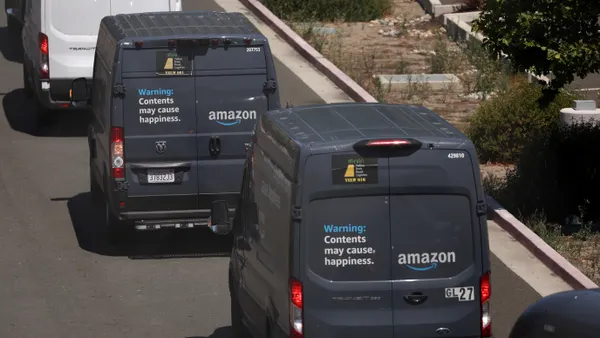Dive Brief:
- As shipper concerns persist over a potential UPS strike this summer, the company has assigned "high-impact executives" to major customers to keep them from shifting volume to competitors, CEO Carol Tomé said on an earnings call Tuesday.
- The 127 executives cover more than 380 UPS customers that collectively represent about one-third of the delivery giant's total volume. "The role of the high-impact executive is to meet with our customers, update them on our ongoing negotiations with the Teamsters and to keep them with us," Tomé said.
- Tomé acknowledged that some volume was diverted from UPS to other carriers in Q1 amid the uncertainty, but the company plans to win it back. One unnamed customer has already signed an agreement with UPS that it will be "coming back" once a handshake deal is reached with the Teamsters, she said.
Dive Insight:
UPS competitors stand to benefit from ongoing uncertainty related to the company's negotiations with the Teamsters, and the sales strategy outlined by Tomé shows that UPS won't make it easy for alternatives to take share.
However, keeping customers at ease is a tall order until an agreement happens. The Teamsters have threatened to strike if a deal isn't reached by the July 31 expiration of their current five-year contract with UPS. Around 330,000 of its U.S. employees are Teamsters-represented, which underscores just how disruptive a strike would be for the delivery giant and its shippers.
The sooner shippers implement alternative options, the better, competitors say. FedEx has urged its customers to take their UPS business elsewhere to avoid any strike-related disruptions. Regional carriers like LSO have also highlighted their available capacity to concerned shippers.
"Our experts estimate up to 10% of UPS' order book could be at risk depending on how the contract negotiations go," Anthony DeRuijter, senior analyst at global research firm Third Bridge, said in emailed remarks to Supply Chain Dive on Tuesday after earnings were released.
National contract negotiations were originally slated to commence on April 17. However, the Teamsters said April 12 it wouldn't negotiate the national contract until region-specific supplemental contracts were finalized, noting that 30 of the 40 supplements to the national contract remained unresolved.
Negotiators have since made progress on supplemental agreements. More than half of the 40 supplements to the national contract have now reached a tentative agreement, Teamsters spokesperson Kara Deniz said in an email Monday afternoon.
The union plans to begin national negotiations on May 1, contingent on remaining supplemental deals being finalized, General President Sean O’Brien said in an update to union stewards on Sunday.
Tomé has continued to express confidence that the company and the union can reach an agreement that works for both sides and its customers.
"While we expect to hear a great deal of noise during the negotiations, I remain confident that a 'win-win-win' contract is very achievable, and that UPS and the Teamsters will reach [an] agreement by the end of July," Tomé said.
In January, CFO Brian Newman noted that the contract negotiations are one reason UPS expects "a bumpy year" ahead. Other reasons cited were inflation, recession forecasts and international disruptions.
Those concerns didn't dissipate in Q1, with UPS encountering less parcel volume than anticipated. The company encountered volume declines in both its U.S. domestic segment (-5.4% YoY) and its international segment (-6.2% YoY) as soft retail sales growth in the U.S. and weak export activity out of Asia weighed on demand. UPS expects demand to remain under pressure due to macroeconomic conditions.
"It's easy to fall into the trap of managing the business for the short term," Tomé said. "While we will control what we can control, we will also stay on strategy. Over the past three years we have fundamentally improved nearly every aspect of our business, and we are just getting started."



